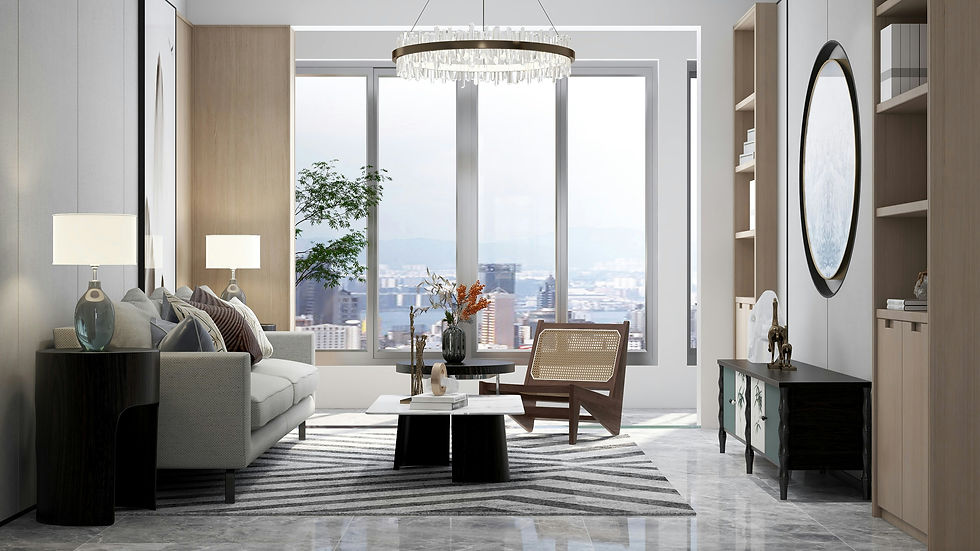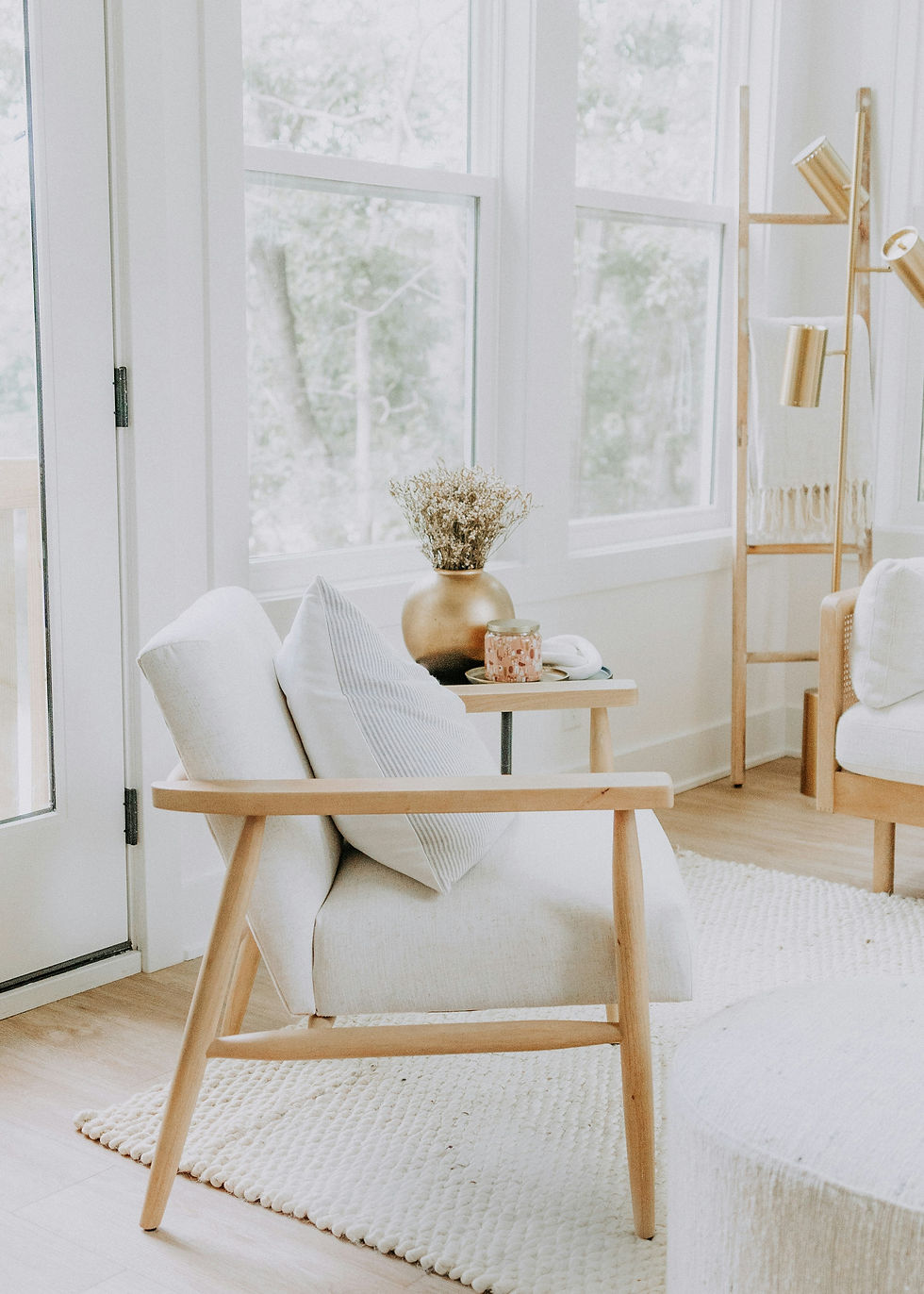How Restraint Becomes a Design Tool
- Aya Design in Style

- Jul 25, 2025
- 2 min read
Design isn’t always about adding. Often, it’s about knowing what to hold back.

In the world of interior design, the temptation to show everything is constant, every texture, every tone, every option. But at Aya, we’ve found that the most powerful spaces often come from restraint. Not as a limitation, but as a conscious, guiding principle.
Restraint isn’t emptiness. It’s intention.
It’s choosing one perfect material over many.
It’s leaving a wall bare so that light can speak.
It’s asking: What needs to be here, and what doesn’t?
Less Isn’t Just Less. It’s More Aligned.

Many clients come to us with a sense of overwhelm. They’ve seen dozens of styles, saved hundreds of images. But when we sit down and begin to strip it all back, to uncover what truly matters to them, we find something far more meaningful than trend or reference.
We find a mood. A pace. A feeling.
And that’s where the real work begins.
Design isn’t just about expression. It’s about distillation, taking that feeling and resolving it into space, flow, and form. That’s where restraint becomes a creative tool.
The Confidence to Do Less
True restraint comes not from indecision, but from confidence.
It takes experience to say, “We don’t need more here.”
It takes vision to leave space, literal or visual, for something to breathe.
And it takes discipline to hold a project to its essence, especially when there are infinite beautiful options to choose from.

In our work, restraint often shows up in:
Material selection – using fewer, more natural finishes to ground a space
Furniture curation – selecting pieces with presence, not noise
Negative space – designing what isn’t there, as much as what is
Lighting strategy – allowing daylight to shape the mood, not compete with it
These decisions aren’t about austerity. They’re about clarity.
What Clients Feel, Even If They Can’t Describe It
Clients don’t always notice restraint in technical terms. But they feel it.
They feel it when they walk into a room that immediately calms them.
They feel it in the way one texture carries across different rooms.
They feel it in the flow of movement, nothing abrupt, nothing cluttered.
It’s often what clients describe as “clean,” “effortless,” or “soothing.” And it’s rarely the result of doing less by default. It’s the outcome of doing less on purpose.
Restraint Is a Form of Respect

In many ways, restraint is about respect,
→ For the architecture of a space.
→ For the client’s life and pace.
→ For light, material, and quiet beauty.
At Aya, we design homes and workspaces that feel aligned with how people actually live. Not just how they want to be seen. That means letting the space carry its own presence, with confidence, not clutter.
The Luxury of Less
In a world full of noise, we believe great design should offer clarity.
Not every wall needs art. Not every corner needs styling.
Sometimes, the most luxurious spaces are the ones that give you room to breathe.
If you’re seeking a design process that values intention over excess, let’s talk.
Start the conversation with Aya Design in Style.
Serving Toronto, Vaughan, Markham & surrounding areas







Comments